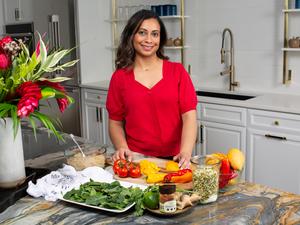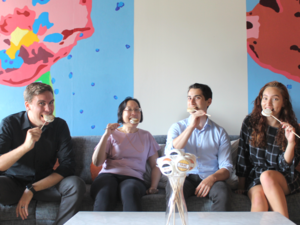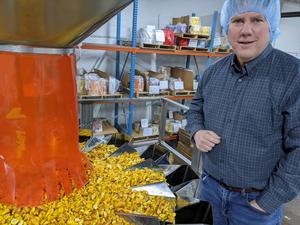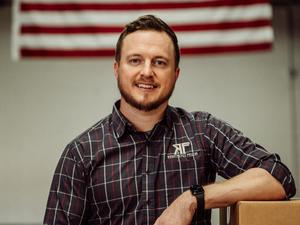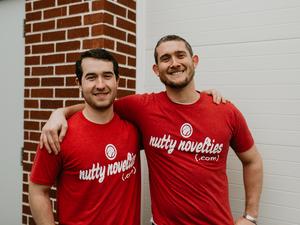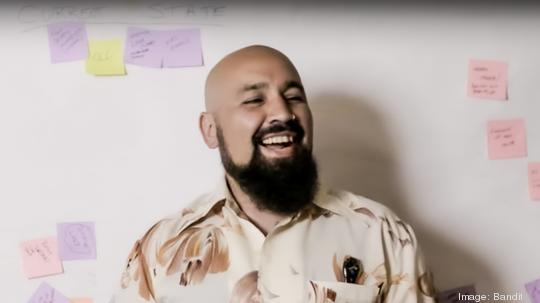
Bo Babaki felt a little like “Breaking Bad” character Walter White when he began making vegan cheese in the basement of his Philadelphia apartment. While he certainly wasn’t concocting anything illicit, the mere fact of his underground operation paired with what undoubtedly seemed like curious deliveries, made it feel like it could have been.
While his earliest days experimenting with vegan cheese were a bit unusual, Babaki has since transformed operations. His company, recently rebranded to Bandit from Conscious Cultures, operates out of a 3,500-square-foot space in the Bok building in South Philadelphia and business has grown to 20 odd states. He recently announced a $1.5 million seed round investment from Prime Movers Lab, funds he’s planning to use to scale the business by a factor of 10.
A food industry veteran who came up in restaurants in both the front and back of house, Babaki first began experimenting with vegan cheese four years ago.
At the time he had recently relocated to Philadelphia. Babaki grew up in Washington, D.C., where he spent the first 30 years of his life, before moving to California. Along the way, he said he “became fascinated by vegan food.”
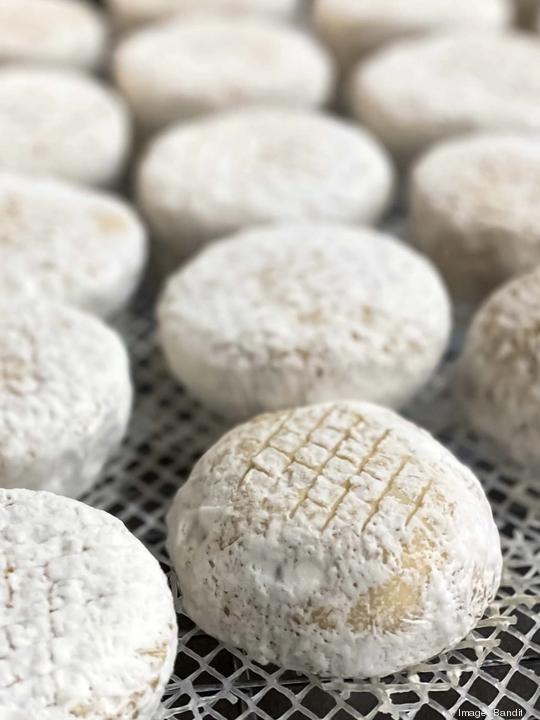
Further inspired by a partner who was going vegan and also lactose intolerant, in September 2018 Babaki began experimenting with vegan cheese. His first batch was a simple blend of raw cashews, coconut milk and lactic acid.
“Every once in a while you have an idea for something and it actually comes out exactly like you imagined it would be,” Babaki recalled of that first batch. If his experiment could yield good results, he wondered what else he could make.
Early on, Babaki used his basement apartment to make and age cheese, using refrigerators as cheese caves. During that time, Babaki was working seven days a week and picking up other income streams working for Uber and Whole Foods.
“At the time I was all funded out of my own pocket,” he said.
After months of toiling, Babaki had his first pop up in 2019 and thereafter established relationships with vegan purveyors like V Marks the Shop in Philadelphia.
A lot has changed in the years since. In early 2020, Babaki moved business to the Bok by taking over another company’s lease. At the time, he had no idea how or if he could scrape together the roughly $40,000 it would cost.
“I don't know how I'm going to do all this, but I'm going to figure it out,” he recalled.
He’s been headquartered there since. In the past two years, Babaki has grown business to about 100 stores in 20 states. Local stores include Riverwards Produce and Kismet Bagels, both in Fishtown.
Bandit currently has six products – two cave aged cheese, two cheese logs, a spread and a mozzarella. Each are made with cashews and coconut oil. A consumer favorite is the cave aged Barn Cat, which can be likened to a brie of camembert.
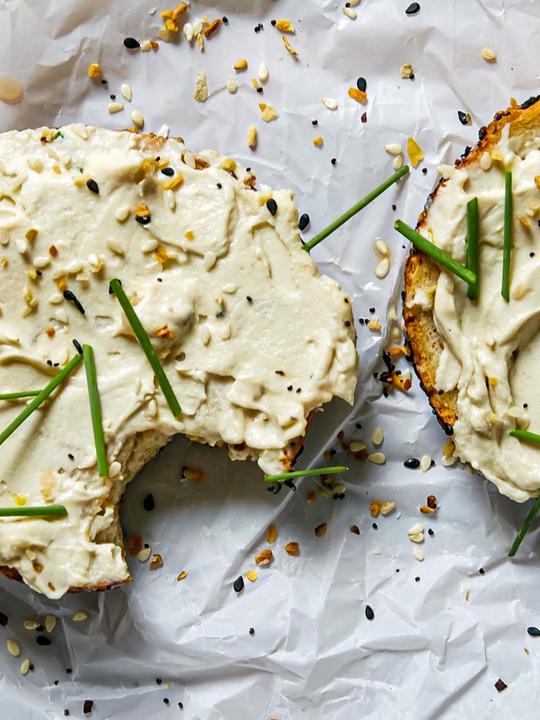
Those cheeses have garnered some national attention, with Babaki’s brand appearing in an April 2021 story in the New York Times. Shortly after, venture capital firm Prime Movers Lab reached out, ultimately investing $1.5 million in the business.
Though the deal closed last year, the funding was only just announced this summer to coincide with Conscious Cultures’ rebrand to Bandit.
Babaki said he plans to use the funds to scale, with a goal of growing by a factor of 10. Some of the funds have already been deployed toward new equipment.
Funding will also go toward marketing and growing headcount. It will also help expand Bandit into new stores in several markets including California and Texas.
Babaki’s business model focuses on wholesale and despite the recent cash infusion, he said he has no intentions of opening a retail component.
If Babaki can grow the company 10-fold, he may consider a Series A. Though he doesn’t have a formalized goal, he said the investment could be 10 times what it is now, or $15 million.
Prime Movers – which has invested in another Philadelphia company, Fort Robotics – said it sees potential in the vegan cheese market. That segment is expected to grow 5.7% this year and to $7.35 billion by 2032, they said pointing to a report from Future Market Insights.
The Wyoming VC firm invests primarily in “breakthrough science companies that are tackling some of the biggest problems facing humanity, including in the agriculture sector,” Partner Gaetano Crupi said.
Livestock are responsible for about 14.5% of human-induced greenhouse gas emissions globally and cattle are a major contributor, with dairy cattle contributing 20% of the segment, according to a report from the Food and Agriculture Organization of the United Nations.
Bandit fits into Prime Movers Lab’s broader framework goals. “We want to back companies that are figuring out how to feed 8 billion people in a sustainable way,” Crupi added. “We think [Bandit is] the vegan cheese brand that can achieve broad mainstream acceptance among cheese lovers everywhere.”
Becoming widely accessible is part of Babaki’s goal, too. He hopes that by creating approachable options, vegan cheese can grab more market share.
“People have different beliefs, but I do believe there's an element of what we're doing, when we're able to do it the best way possible, that I think legitimately can make it a better planet that we live on,” Babaki said.
Where did your interest in the culinary arts come from?
I grew up with my grandma. From the time I was a very small child, I always wanted to be near her and so I would find my way into the kitchen and help with little tasks. Then I actually, just through life circumstances, learned to cook at a very young age. All through junior high and high school, I was doing meal prep every week. I think when you take the time to actually make something yourself … you have this deeper appreciation for it.
Why cashews?
Cashews have the least intrusive flavor of all the nuts that are out there. Nuts I think are the best thing to use. The fat content is really good. Currently, we use a little bit of coconut to try and make sure we get that really rich double cream consistency, but at some point, we might engineer that out as we're working with the new equipment.
Do you have new product plans?
I'm constantly going to be doing some experiments. I really want to make hard cheese. Right now, in order for this expansion to happen, people want to see some new stuff too. But there's people that still don't know who we are yet. We haven't even tapped into the potential of what our current products are and can be, so we're just trying to focus on what we do well.
